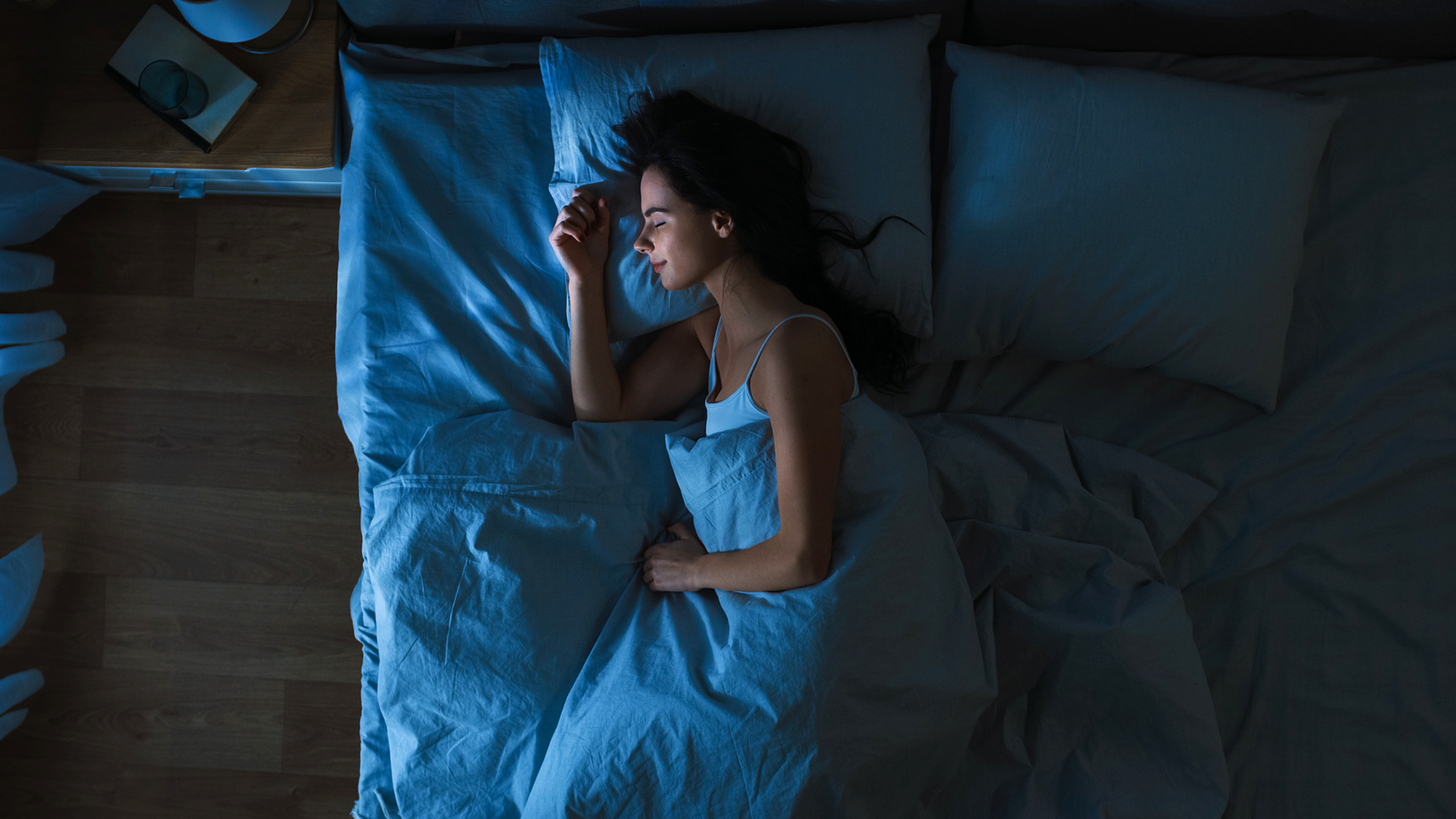Things you’ll learn in this blog: |
You’ll know yourself how crucial sleep is and how lack of it can impact your overall health. Sleeping well can boost your mood, focus and concentration for the following day and even help you grow muscles and lose weight.
Despite the benefits, many people worldwide struggle with sleep and constantly fail to get the required hours of rest each night.
Indeed, you may sleep less than you should because you follow lousy sleep hygiene.
Sleep quality is essential, so to get all the benefits, you need to start adding a few things into your bedtime routine to ensure you're getting the most out of slumber time.
Here's a look at some of the things you should be doing to improve your sleep routine and why it's so crucial in the first place.
What is sleep hygiene?
No! It’s not about washing your bedsheet, brushing your hair, or showering - despite what the word hygiene might suggest (although some of these might help you).
As humans, falling asleep is more challenging than just lying down and shutting your eyes, especially in an ever-stressful and wound-up world.
Many factors contribute to how well and quickly we can sleep. These factors can include things such as your routine, environment, and habits, and they can all come together to influence what kind of quality sleep you will get.
|
Sleep hygiene refers to the many science-backed rituals and routines a person performs before bad. It’s about creating healthy sleep habits. |
In addition, it can refer to specific behaviors that will influence someone's night sleep. Improving sleep hygiene means following a routine that makes it easier to fall asleep and experience a refreshing deep slumber.
In contrast, poor sleep hygiene refers to an environment or practice counteractive to your sleep quality.
Everyone can change their sleep hygiene and make it easier for themselves to have a good night's sleep, although it can be tough to alter longstanding habits.
Thankfully, the results are worth the effort because transforming your routine is powerful.
Why is sleep hygiene important?
Having good sleeping patterns means you'll find it easier to fall asleep, increasing your chances of having a longer and deeper sleep. And a good night's sleep is the bedrock of a productive day and can boost your moods considerably.
It is no exaggeration to state that learning good sleeping habits and falling into poor sleep hygiene can define whether you lead a happy and healthy life.
The result is that you'll be able to experience the many benefits of good sleep on your physical and mental health. There is a whole host of positives that good speed hygiene that leads to better sleep can have on your general health.

Some of the main benefits of improved sleep hygiene are:
Fewer health problems
One of the primary benefits of good sleep is that it can help reduce the risk of developing various health problems.
For example, studies have shown that people who sleep seven or more hours per night are at a lower risk for developing heart disease, stroke, and type 2 diabetes. They have lower blood pressure and are at a lower risk of developing chronic inflammation, a risk factor for several diseases.
As your muscles and cells regenerate, grow, and heal as you sleep, a good sleep routine can help you reduce aches and pains and recover from injuries faster.
In addition, a lack of sleep can make you more susceptible to illnesses. Not having quality sleep can harm your immune system, meaning it's not as effective as it should be at fighting off viruses and infections.
Enhanced mental health
Good sleep can also enhance mental health by improving mood, cognitive function, and memory.
For example, studies have shown that people who sleep well are happier and have less anxiety and depression.
Additionally, good sleep can help to improve cognitive function by giving the brain time to rest and repair itself.
Finally, good sleep is essential for memory formation and consolidation.
When tired, your reaction times and reasoning are affected, so you may struggle to get through your day-to-day. That's why it's essential to sleep well before work or school to retain information.
Increased life expectancy
One of the most significant benefits of good sleep is that it can help to increase life expectancy.
Studies have shown that people who get adequate sleep tend to live longer than those who do not get enough sleep.
Additionally, good sleep can help to reduce the risk of developing age-related diseases such as Alzheimer's disease and Parkinson's disease.
Better quality of life
In addition to living longer, people who get adequate sleep also tend to have a better quality of life.
Studies have shown that people who sleep well report higher overall life satisfaction. Good sleep has also been linked to increased productivity, improved concentration, and enhanced creativity.
Reduced stress levels
One of the most important benefits of good sleep is that it can help to reduce stress levels.
When stressed, our bodies release hormones that can be harmful if they are present at high levels over an extended period.
Good sleep helps regulate these stress hormones and keep them healthy.
Weight reduction
And finally, having a good sleep schedule can also benefit people trying to lose weight, as getting the right sleep can contribute to increased weight loss.
The reason that you'll lose more weight if you sleep well is that lousy sleep makes your body increase insulin resistance and raises your glucose intolerance. This means that your body will hold on to extra fat and store it. Getting a good night's sleep will help regulate your metabolism, allowing you to burn more fat more quickly.
If weight loss is the main reason you want to improve your sleep hygiene, you can enhance your fat-burning potential by adding weight-loss pills to your routine.
Although not a solution, adding weight loss pills to your sleep routine can help you achieve even better results. PhenQ PM is a weight loss solution specially formulated for taking overnight.
How to create good sleep hygiene practices
Now that you understand that sleep hygiene is essential for maintaining good health and fitness, it's helpful to learn a few things you can do to improve your routines before bed.
Although most contributors to your sleep hygiene are behaviors before bed, you can also act differently during the day to help influence a better night's sleep.
Some of the best sleep hygiene tips are as follows:
1. Keeping a consistent sleep schedule
One of the best ways to improve your sleep hygiene is to keep a regular sleep schedule.
Keeping a regular sleep schedule means going to bed and waking up at the same time each day, even on weekends. Doing this will help regulate your body's natural sleep rhythm and make it easier for you to fall and stay asleep.
The ideal scenario is that you will naturally wake up minus an alarm clock at the same time every day - this shows that you are getting the right amount of sleep.
After all, if you constantly go to bed at different times, your body will have difficulty knowing when to start relaxing naturally.
The result of this irregularity is that you may feel too alert to fall asleep, even when you want to. However, by setting and sticking to a consistent bedtime, you should start feeling sleepy naturally after a few weeks.
2. Create a relaxing bedtime routine
Another way to improve your sleep hygiene is to create a comfortable bedtime routine that you can follow each night.
This routine may include taking a warm bath, reading a book, or stretching for a few minutes. Doing these activities will signal to your body that it is time to wind down and sleep.
You should avoid doing anything that creates adrenaline or amps you up, and to maximize your sleeping fully; you should also stay clear of electronic devices for at least an hour before bed.

These devices emit blue light that strains your eyes and mimics the natural light produced in the daytime. Unfortunately, this means your brain is tricked into thinking it's still daytime, leading to poor-quality sleep.
Moreover, the high levels of dopamine and mental stimulation engineered into social media platforms and the content of many websites means your brain will be encouraged to switch on rather than off.
3. Keep your bedroom dark, quiet, and calm
To create an environment conducive to sleep, keep your bedroom dark, quiet, and relaxed. You may have to close the blinds or curtains, turn off any electronics, and set the temperature to a comfortable level.
Creating a dark, quiet, and chilled environment will help you fall asleep and stay asleep throughout the night.
You might think it's counterintuitive to have a cold room and believe that cozy and warm work best for sleep. However, the opposite is true. A cool room is best because it lowers your body temperature and makes it more likely for you to experience deep sleep.
4. Avoid caffeine before bedtime
Caffeine is a stimulant that can keep you awake and make it difficult to fall asleep.
Therefore, avoiding caffeine in the evening and limiting your intake earlier is essential.
If you drink caffeine, try to consume it in the morning, so it does not interfere with your sleep. You shouldn't have coffee or energy drinks after 2 pm, as it can remain in your system and cause sleepless nights.
5. Avoid alcohol before bedtime
While alcohol may make you feel drowsy at first, it can disrupt your sleep later in the night and make it difficult to get a good night's rest.
Therefore, it is best to avoid alcohol in the evening hours if you are trying to improve your sleep hygiene.
6. Avoid nicotine before bedtime
Like alcohol, nicotine is also a stimulant that can disrupt sleep later in the night.
Therefore, if you are trying to quit smoking or using tobacco products, it is also best to avoid them in the evening.
7. Get active
Sitting or lying down for long periods during the day will mean you're burning less energy.
It might seem counterintuitive, but leading a sedentary lifestyle means that you'll struggle to fall asleep by the evening, thanks to all the pent-up energy in your body.
To help you sleep better at night, try to exercise at some point during the day. Even walking for a few thousand steps can help wear you out and ensure you'll be able to eat better. The sweet spot is to ensure you're active for at least 30 minutes daily.
8. Don't eat too late
Eating just before bed is a prime example of poor sleep hygiene.
By the time you get into bed, your body will still be digesting your food, meaning you'll struggle to sleep well. In addition to this, eating just before bed can make you more susceptible to bloating, and stomach aches the next day.
9. Use a pillow spray
Certain scents help you fall asleep faster - lavender is one of the most popular aromas.
This is because lavender has been known to help with insomnia, depression, and anxiety, all things that can keep people up at night.
To help you build better sleep hygiene, a few sprays of pillow spray could be helpful.
Feel the benefits of sleep
If you're a person who struggles to sleep, working on healthy sleep habits and behaviors can be very helpful, as doing so will improve your sleep hygiene.
Good sleep is vital in helping you function well, and a person who sleeps well is more likely to be healthy.
By following these steps, you'll benefit from better concentration and an increase in energy. You may also find losing weight more straightforward, which is a huge bonus.
Although sleep is your primary tool to lose any excess weight, you can also boost your chances of achieving your dream physique through weight loss pills.
You can transform your life and become far healthier with a good diet, regular exercise, and excellent sleep hygiene.
If you want to help burn fat while you sleep, then you can check out PhenQ PM to fight cravings and stimulate metabolism when you sleep.




